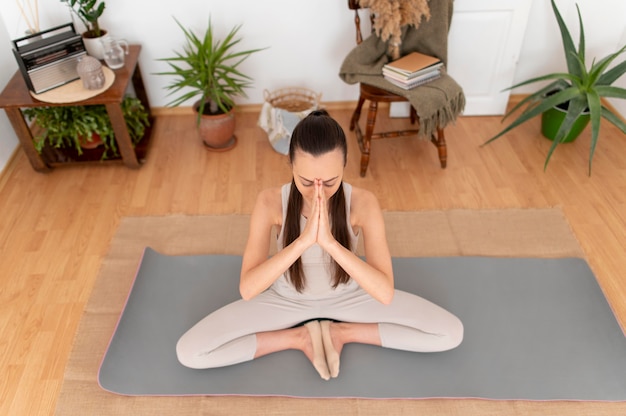

It’s early January, and many people who made New Year’s resolutions are starting to falter. They’ve already skipped a morning at the gym, indulged in unhealthy foods, or forgotten to meditate. Changing habits is tough.
The habit I focus on is daily meditation, something I mastered long ago. My goal now is to help others establish this habit. It took me years, but I eventually had a breakthrough, which I’ve shared with others, and it has helped them too.
This breakthrough isn’t just one thing. In fact, it involves recognizing that there’s no single secret to becoming a consistent meditator. What we need is a combination of tools and strategies that support daily meditation.
None of these tools rely on willpower. Willpower isn’t very effective. One study found that a six-week self-control training course didn’t help participants change any habits and actually left them feeling emotionally drained. Researchers have discovered that people who are good at resisting temptations don’t feel tempted in the first place. They avoid situations where they need to use self-control. For example, rather than walking past a donut shop, they take a different route. They place their alarm clock across the room so they have to get out of bed to turn it off.
The idea that willpower alone can change habits is flawed. As the Buddha humorously indicated, simply wanting something isn’t enough; you have to take the necessary actions to make it happen.
Here are some key points I teach those who want to meditate daily. Often, after a meditation class where they do 30- or 40-minute sessions, people are told to practice daily. They try to fit in these long sessions into their already busy lives and find it difficult. Most people can’t carve out that much time daily for a new habit, just like you can’t fit size 8 feet into size 6 shoes. So I suggest aiming for just five minutes a day. It’s a manageable amount of time that everyone can find, whether it’s in the bathroom at work, after reading a child to sleep, in the car upon arriving at work, or on the bus or train.
Five minutes might not seem like much, but it helps create and sustain a powerful habit. Once you manage five minutes a day, it’s easier to increase it to eight, ten, fifteen, or twenty minutes, which can significantly impact your day and life.
For meditation purposes, a day isn’t the 24 hours between midnights but the time between waking up and going to sleep (“organic” day). This approach lets you fit in a quick five-minute session if you get to bed after midnight and haven’t meditated yet.
Having the intention to meditate daily is crucial. It’s not enough to vaguely think it would be nice to meditate more often. You need to ask yourself how you can make it happen and plan accordingly. Decide when you’ll meditate, for how long, how you’ll time it, whether you’ll use a guided meditation, and whether you’ll meditate alone or with someone via a Zoom or phone call.
Spontaneity often leads to failure in maintaining the habit. Make clear plans, but be prepared for interruptions. Research shows that having a Plan B increases the likelihood of sticking to new habits. Plan for potential obstacles, whether it’s a sick kid, a work emergency, or a faulty alarm. Avoid planning to meditate right before bed as your only backup plan, as it leaves no room for a Plan B.
After a few consecutive days of meditation, use a powerful strategy: a simple mantra to repeat frequently: “I meditate every day. It’s just what I do. It’s part of who I am.” This mantra changes your self-image. If you struggle to keep up a daily meditation practice, you might believe you lack willpower. This belief becomes a self-fulfilling prophecy. By repeating the mantra, even during moments of doubt, you reinforce your dedication to daily meditation.
This mantra has kept me meditating daily and has helped some of my students meditate consistently for years. Missing a day feels crushing, but it’s an opportunity to learn. Reflect on what went wrong and how to handle similar situations in the future.
Planning is essential, yet life is unpredictable. Acknowledge this and remain flexible. I have many more strategies, but they’re too extensive for this article. To learn more, consider joining my online course, “Get Your Sit Together,” or my upcoming live course through the New York Insight Meditation Center, which focuses on community support’s power in maintaining a meditation habit.